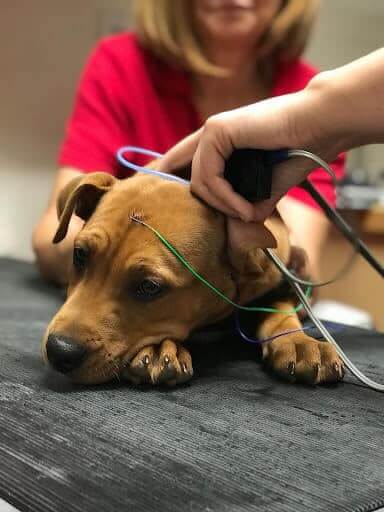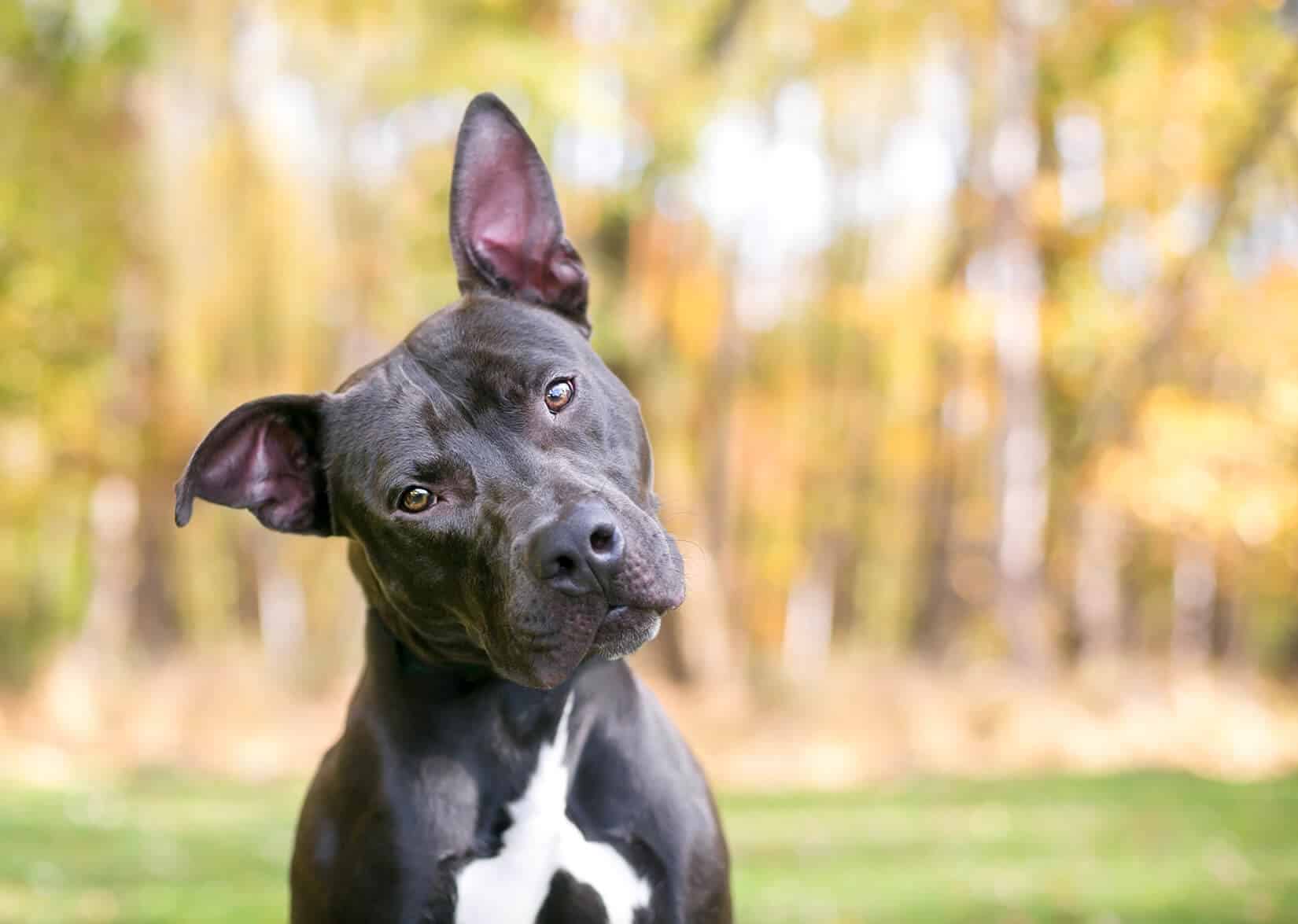If you’re concerned that your dog may be experiencing some degree of hearing loss or even deafness, contact an audiologist who specializes in animal audiology. Even with hearing loss, most dogs are able to adapt and won’t slow down one bit. Keep reading to learn more about hearing loss in dogs and hearing tests that can help you better care for your furry best friend.
Sound Relief Hearing Center is here to help you protect the hearing health of everyone in your family. Whether you’re experiencing hearing loss, tinnitus symptoms, or hyperacusis, our experienced and dedicated team of audiologists is here to help you take back control of your hearing.
Why would you test a dog’s hearing?
There are many reasons why people test their dogs’ hearing. The most common reason include puppies from breeders, dogs used for breeding, service dogs, working dogs, family dogs with signs of hearing loss, and dogs who are susceptible to congenital hearing loss.
Any breed of dog can have congenital deafness; however, certain dogs are more susceptible to congenital hearing loss. These include canines with piebald color genes or merle color genes, typically associated with blue eyes and a white coat.
These genes can affect these popular dog breeds:
- Australian Cattle Dogs
- Bull Terriers
- Boston Terriers
- English Setters
- Beagles
- Akitas
- Collies
- Dalmatians, and more.
What are other causes of dog hearing loss?
Similar to humans, genetics is just one cause of dog hearing loss. There are many additional causes of hearing loss in dogs, including:
- Old age
- Repeated exposure to loud noises
- Chronic ear infections
- Head injuries
- Degenerative nerve changes
- Ruptured ear drums
- Tumors
- Ototoxic medications
How can I tell if my dog is hard of hearing?
Since you can’t verbally ask your dog about their hearing, it’s important to know the common signs of dogs that have poor hearing. Signs of hearing loss in dogs include:
- Trouble localizing sound
- Unresponsive or inconsistent responses to verbal commands
- Unresponsive or inconsistent responses to everyday sounds (doorbell, toys, etc.)
- Shaking or tilting their head
- Becoming startled easily
- Sleeping through loud events/sounds
- Less active
- Difficult to rouse from sleep
- Barking excessively
Any canine exhibiting these signs should be evaluated by an experienced audiologist who works on animal audiology. Dogs that do have unilateral or bilateral hearing loss are very trainable and respond well to visual/sign commands and tactile commands. Dogs with hearing loss should be carefully supervised as they cannot hear dangerous sounds, such as traffic.
What is a BAER hearing test for dogs?
BAER is an electro-diagnostic test to screen and diagnose hearing loss in canines. Subcutaneous electrodes are strategically placed around the skull in areas that have been numbed with lidocaine. A click stimulus is played into the animal’s ear. A waveform is then produced and analyzed, and certain patterns indicate whether the animal has normal hearing, hearing loss, or is completely deaf. The cost of testing varies and is not commonly offered at many veterinarian offices.
Are there hearing aids for dogs?
Based on the anatomy and physiology of the canine ear, hearing aids can work for dogs with hearing loss; however, it would take a lot of training to get the dog to accept wearing the device. The device would not only need to go in the ear with a custom earmold, but it also would need to be worn on the body via a collar or harness.
Completely deaf canines with no residual hearing would not benefit from hearing devices. Often dogs rely on their other senses, such as smell, more than hearing, which makes it challenging for them to accept the benefit of a hearing device.
Audiologists receiving animal audiology certificates
Audiologists can obtain a certificate in Animal Audiology from accredited programs. Dr. Ashby obtained her certificate while completing her Au.D. at the University of Northern Colorado. This program is called FETCHLAB. FETCHLAB UNC is based in the Audiology and Speech-Language Sciences program at UNC and operates in partnership with the University of Cincinnati and the University of Akron. Research continues to grow in this field as we learn more about dogs and develop methods for measuring and protecting their hearing.
Tips for living with a dog with hearing loss
Living with deafness or hearing loss can be a challenge for both dogs and their owners alike. Since dogs have such a strong sense of smell, this allows them to more easily adapt with subpar hearing or even full deafness. However, you can ensure your dog still has a high quality of life with a bit of planning and these tips:
- Monitor your dog’s activity more closely, especially if they’re near traffic or a similar hazard that they can’t hear. Never let your hard of hearing dog wander on their own without a leash outside.
- Train your dog to recognize and respond to hand signals.
- Use a visual cue, like a flashlight, to get your dog’s attention. Then, you can use hand signals once you’re in their line of sight.
- You can also use vibrations to get your dog’s attention, like stepping heavily on the ground.
- Be careful when approaching your dog. Dogs with deafness or hearing loss may startle more easily, especially around strangers.

Puppy Irv getting his hearing tested by his mom!
Protect your hearing health with Sound Relief
When caring for your dog, don’t forget to protect your own hearing health as well. At Sound Relief Hearing Center, we’re committed to helping people conquer common hearing issues, including hearing loss, tinnitus, and hyperacusis. We also specialize in fitting patients with industry-leading hearing aids suited to their specific type and severity of hearing loss. With our unparalleled experience and dedication to each of our patients, Sound Relief is here to help you regain control of your hearing health.
Schedule an appointment today.

